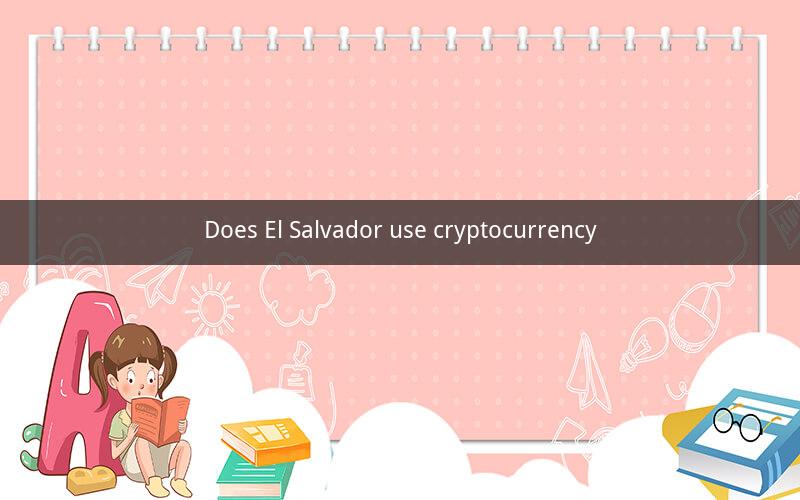
El Salvador's Adoption of Cryptocurrency: A Comprehensive Analysis
Table of Contents
1. Introduction to Cryptocurrency
2. The Rise of Bitcoin in El Salvador
3. Government's Role in Adopting Cryptocurrency
4. Benefits and Challenges of Cryptocurrency in El Salvador
5. The Future of Cryptocurrency in El Salvador
6. Conclusion
1. Introduction to Cryptocurrency
Cryptocurrency, a digital or virtual currency that uses cryptography for security, has gained significant attention in recent years. It operates independently of a central authority and is decentralized. Unlike traditional fiat currencies, cryptocurrencies are not backed by a government or central bank and rely on a technology called blockchain for their security and integrity.
2. The Rise of Bitcoin in El Salvador
In 2021, El Salvador became the first country in the world to adopt Bitcoin as legal tender. This decision was made by President Nayib Bukele, who believed that Bitcoin could revolutionize the country's economy by providing a stable currency for its citizens, especially those living in poverty and without access to traditional banking services.
3. Government's Role in Adopting Cryptocurrency
The government of El Salvador has played a significant role in promoting and implementing cryptocurrency within the country. The Bitcoin Law was passed to provide legal recognition to Bitcoin as a legitimate currency. The government also launched the Chivo wallet, a digital wallet designed to facilitate transactions using Bitcoin and other cryptocurrencies.
4. Benefits and Challenges of Cryptocurrency in El Salvador
Benefits
1. Financial Inclusion: Cryptocurrency offers financial services to individuals who previously had limited access to traditional banking.
2. Lower Transaction Costs: Cryptocurrency can reduce the costs associated with sending money, making it a viable option for remittances.
3. Stability: Bitcoin's price volatility has been a concern, but the government has taken measures to stabilize the currency by purchasing and holding a portion of the national Bitcoin reserve.
Challenges
1. Regulatory Uncertainty: The legal framework for cryptocurrencies is still evolving, which can lead to regulatory uncertainty and potential risks.
2. Infrastructure: There is a need for improved infrastructure to support cryptocurrency transactions, such as better internet connectivity and digital literacy programs.
3. Security: While blockchain technology is secure, there are risks associated with storing and managing cryptocurrencies, such as theft and hacking.
5. The Future of Cryptocurrency in El Salvador
The future of cryptocurrency in El Salvador appears promising, despite the challenges. The government's commitment to expanding its adoption is evident through the development of new policies and infrastructure. Additionally, the country's embrace of cryptocurrency has sparked interest and investment from both local and international businesses.
6. Conclusion
El Salvador's adoption of cryptocurrency has been a groundbreaking move that could potentially improve the lives of its citizens. While the journey is not without its challenges, the government's efforts to integrate cryptocurrency into its economy indicate a forward-thinking approach to financial innovation.
---
Questions and Answers
1. Q: How has the adoption of cryptocurrency affected the Salvadoran economy?
A: The adoption of cryptocurrency has the potential to improve financial inclusion and reduce transaction costs but also presents challenges in terms of regulatory uncertainty and infrastructure development.
2. Q: What is the Chivo wallet, and how does it function?
A: The Chivo wallet is a digital wallet developed by the Salvadoran government to facilitate transactions using Bitcoin and other cryptocurrencies. It can be used for purchasing goods and services and receiving remittances.
3. Q: How has the government addressed the issue of cryptocurrency's price volatility?
A: The government has addressed this by purchasing and holding a portion of the national Bitcoin reserve to stabilize the currency's value.
4. Q: What is the legal status of cryptocurrency in El Salvador?
A: Cryptocurrency, particularly Bitcoin, has been recognized as legal tender by the government through the Bitcoin Law.
5. Q: Are there any tax implications for using cryptocurrency in El Salvador?
A: The government is still finalizing regulations regarding taxes on cryptocurrency transactions, but it is expected that they will be taxed similarly to other financial transactions.
6. Q: How has the international community responded to El Salvador's adoption of cryptocurrency?
A: The international community has shown mixed reactions, with some countries expressing interest in similar initiatives, while others have expressed concerns about the potential risks.
7. Q: What are the main reasons for the government's decision to adopt cryptocurrency?
A: The main reasons include improving financial inclusion, reducing transaction costs, and increasing the country's economic resilience.
8. Q: Can citizens use cryptocurrency as a form of payment for government services?
A: Yes, the government is working to integrate cryptocurrency as a payment option for government services and programs.
9. Q: Are there any plans to expand the use of cryptocurrency in other countries?
A: Yes, several countries have expressed interest in exploring similar initiatives, although none have adopted cryptocurrency as legal tender as El Salvador has done.
10. Q: What are the potential long-term impacts of cryptocurrency adoption on El Salvador's economy?
A: The long-term impacts could include increased financial inclusion, lower transaction costs, and a more resilient economy, although the exact outcomes are yet to be determined.